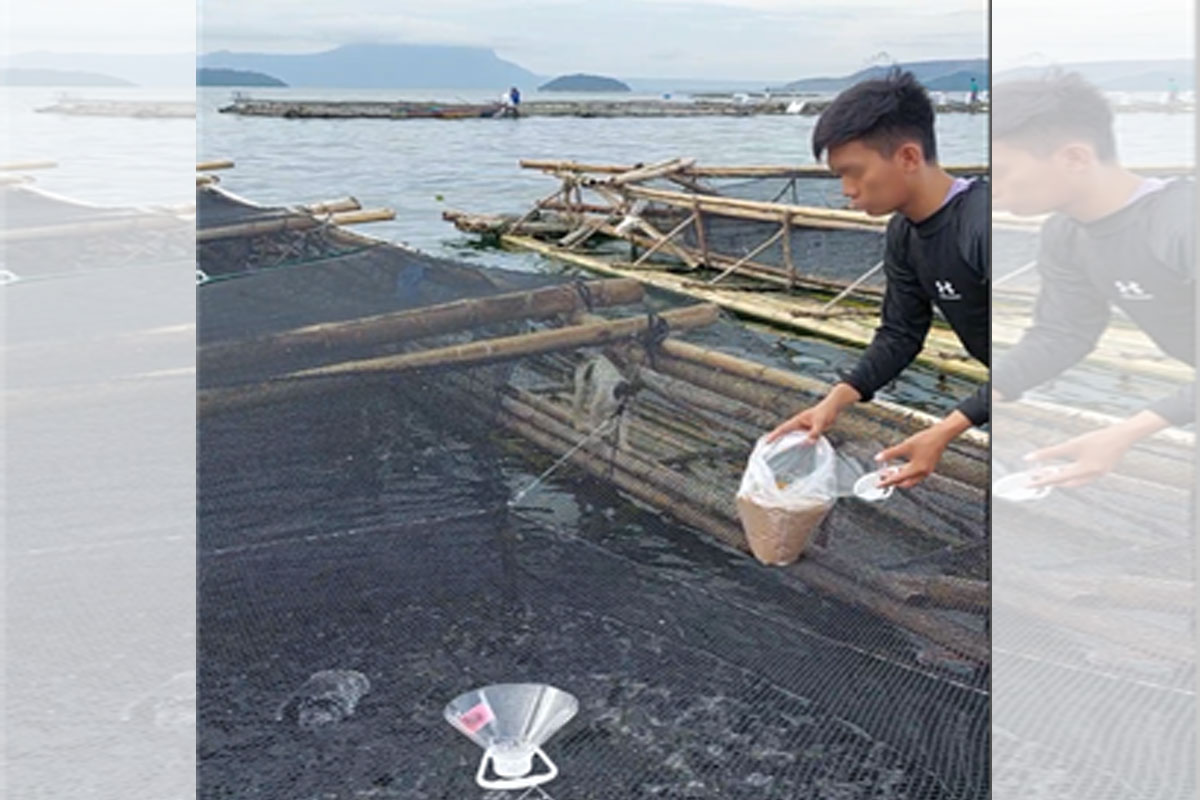
MAJOR POGO RAIDS PROOF OF GOV’T RESOLVE TO FIGHT HUMAN TRAFFICKERS, SCAMMERS–TOP CYBERCOP
FACING what appears to be the biggest challenge in his career, the country’s top cybercop says that the two major anti-human trafficking raids they have conducted on known Philippine Offshore Gaming Operator or POGO hubs in the country since last May is a clear proof of the government’s resolve to stop human traffickers and online scammers using The Philippines as a major base of their multi-billion dollar illicit operations.
“What is very important here is that we tell the international community that we are not condoning human trafficking and are seriously addressing online scams where citizens of other foreign countries are the main victims,” said Philippine National Police Anti-Cybercrime Group (PNP-ACG) director, Brigadier General Sydney S. Hernia.
The Magna Cum Laude of Philippine Military Academy ‘Tanglaw-Diwa’ Class of 1992 last March took over as the new PNP-ACG director with a commitment to help fight cybercrime which has become a major threat not just for the private sector and for individuals but for the government and the nation as a whole.
The two separate raids spearheaded by the PNP-ACG inside a POGO hub in Clark Freeport Zone in Mabalacat City in Pampanga last May and the recent operation in another POGO facility in Las Piñas City have resulted in the rescue of more than 4,000 people, some 3,000 of them citizens of other Asian countries.
Brig. Gen. Hernia admitted that those two raids have literally affected the ‘freedom of movement’ of many of them since they went after international syndicates. ‘We have hit big-time international syndicates, not only small fries,” he said.
The official said that the last batch of foreigners rescued inside the raided Clark facility were set to be repatriated to their respective countries this week. Those found working in the Las Piñas City POGO hub are set to be returned to their motherlands as soon as their comprehensive investigation is completed.
It includes the cross-referencing of the foreign national identities with the record of the different Asian embassies.
Those two major anti-human trafficking raids have seen the PNP being confronted by ‘pressure’ from different lobby groups, those from the PNP’s external audience which officers have to fight especially claims that the syndicates have been offering seven-digit figures for the release of each of the apprehended foreigners.
During the 1st and 2nd day of the raid in Las Piñas City, the raiders have had difficulties in accounting for the workers due to the huge size of the raided facilities. Each building have 10-storeys which officers need to scour.
Discovered in one of the raided offices were thousands of cell phones and SIM cards which are all believed being used in scams.
Brig. Gen. Hernia said they carried out the raids based on evidence indicating potential engagement of the apprehended foreign and Filipino workers in various illegal activities including human trafficking, love scams, and investment scams under the guise of being a legitimate POGO entity.
The operation resulted in the rescue of nearly 3,000 Filipinos and Foreign Nationals who were identified as victims of human trafficking. PNP human rights officers were deployed to protect the rights of the rescued victims, ensure their well-being and address any concerns they may have,” he added.
The raided compound and its seven buildings housed a virtual entertainment complex with various amenities such as grocery stores, medical and dental clinics. PNP-ACG spokesperson, Captain Michelle Sabino said that just like the one they found in Clark, the Las Piñas POGO complex it showed a ‘self-contained community.’
The two raided facilities have the so-called “romance room” utilized by scammers to deceive unsuspecting individuals, creating an illusion that the people they were interacting with are genuine and located in their own homes was likewise discovered, the official said.
Their only difference is that the Las Piñas City POGO complex featured the live streaming of an online casino complete with card dealers.
Brig. Gen. Hernia said rich people behind the operations of the raided POGO facilities really have invested lots of money to operate those hubs. “They really spent huge amount of money there, even conducted feasibility studies,” he said.
The official said that the Las Piñas City POGO hub turned out to be employing some 3,000 people with a minimum salary of P30,000. If that would be the case, the company would be paying their workers some P90 million in monthly salaries plus the other operational expenses like the salary of the security guards and their monthly electric, water and internet bills.
However, those expenses may be considered just a penny compared to the companies’ daily revenues. To illustrate, if half of the rescued workers earn a minimum of US$1,000 from their victims abroad each day, it means that the companies would earn around $1.5 million a day or roughly $45 million a month.
“It’s really a billion-dollar industry with the brains already knowing their Return of Investment or ROI formula,” said Hernia.
Other officials who spoke with the Journal Group on condition that they not be named said that following talks with their counterparts, they have found out that the multi-billion fraudulent scheme originally emanated from China. However, when the Chinese government launched a crackdown on the scheme, syndicates transferred their operations to other countries like India, Myanmar, Cambodia and even Dubai.
The sources said that they have discovered that the raided facilities in Clark originally have a similar set-up in Dubai.
One official said that in the country, they are looking at reports that the syndicates have acquired the help of contacts who have an ‘international manpower agency-like companies’ to bring foreign workers to Manila.
“As soon as their ‘employees’ with tourist visas arrive in the country’s airports, they would be fetched by their contacts and their passports confiscated. We don’t know if some immigration authorities are involved or are blind in these operations but we have found out that the rescued foreigners all have tourist visas. None of them have working visas but agencies would help them extend their tourist visas and eventually, have it converted to working visas,” the official said.
A provision in the old Commonwealth Act allowed the conversion of tourist visas to work visas, the Journal Group was told. The syndicate-cum-international manpower agency holds on to the workers’ passports and would be the one to fix any expired visas.
Sources said that in most cases, the tourist or work visas of the foreigners are renewed without the passport holder appearing in person. However, the refusal of the foreigners to testify has been hindering efforts by the police to establish the identities of persons behind the anomaly.
Brig. Gen. Hernia said he has been privy to such information and added he finds if highly-anomalous. “A passport is the personal property of an individual. If a Filipino is in a foreign country, he needs to always carry his passport but what is happening here is exactly not the same as the passports of the foreign workers are being seized by their employers, he said.
The official said lawyers of the raided facilities have also filed habeas corpus cases against them to force them to produce the foreigners who have no passports. However, they find it very interesting that the same lawyers have photocopies of the passports of the aliens they want to see.
Brig. Gen. Hernia said that some 700 foreigners found in the Las Piñas City facility have no passports, thus the need to subject them to biometrics and cross-matching with the help of their embassies.
Another problem is that many of the foreigners were found to be not using their real names. The passports of some 600 aliens were being cross-checked amid suspicions they are fake ones.
“This is really a security concern, not purely economic concern only since we could have already been infiltrated by lawless elements,” the official said.
Brig. Gen. Hernia said that the Chinese government is fully cooperating with their ongoing investigation even as he stressed the need to strengthen the monitoring of POGO companies in the country.
“We need to strengthen in particular the monitoring of POGO workers. How many of them are registered, how many of them have passports? This could be done thru regular inspection of concerned government agencies which should be given POGO visitorial powers,” he said.
Last week, the PNP-ACG turned over four wanted Chinese and three Taiwanese nationals to the BI. The seven were among those found inside the raided Las Piñas City facility.
The Chinese are wanted for cases such as drug trafficking, telecom and contract fraud and theft. On the other hand, the Taiwanese nationals are wanted for fraud.
The seven were among the more than 1,000 different Asian nationals held as a result of the June 26 raid at the seven buildings of Xinhuang Network Technology located along Alabang-Zapote Road in Almanza Uno, Las Piñas City. The facility has been ordered shut down by PAGCOR.
The PNP Intelligence Group (PNP-IG) has stepped-up its monitoring of POGO ubs in the country which are believed to be being used as ‘fronts’ for illegal online activities and other criminal activities, the Journal Group learned.
PNP chief, General Benjamin C. Acorda Jr. instructed PNP-IG director, Colonel Romeo J. Macapaz to monitor POGO facilities where illegal activities like human trafficking, kidnapping and cyber-crime activities are taking place and where foreign fugitives may be hiding too.
The PNP-IG provided the PNP-ACG with the ‘intelligence packet’ which resulted in the raid at what has been considered as the biggest trafficking hub discovered in the country believed to be being operated by a group of Chinese nationals, four of them identified as one alias ‘Quiha Lu,’ Liangfei Chen, Jimmy Lin and Abbey Ng.
The warrants which were issued by Judge Phoeve Castillo Meer of the Las Piñas City Regional Trial Court Branch 275 led in the discovery of the presence of 1,535 Filipinos and 1,193 foreigners working in the raided facilities.
The foreigners include 604 Chinese, 183 Vietnamese, 137 Indonesians, 134 Malaysians, 81 Thailanders, 2 Africans, 21 Taiwanese, 7 Nigerians, 5 Singaporeans, 5 Myanmar nationals, 4 Yemenis, 2 Pakistanis, 1 Somalian, 1 Sudanese, 1 Cameroon national and 1 Iranian.
Brig. Gen. Hernia said that during the May 4 raid at the Sun Valley Hub located in Mabalacat City in Pampanga, over 1,000 foreign nationals were also rescued.
He said that six Chinese nationals and one Taiwanese who are also facing various criminal offenses were among those found working in the raided facility.
An investigation showed that the workers were recruited through online job postings, mostly on Facebook, Telegram, and WhatsApp, to work as call center agents and were promised high salaries and good working conditions.



















